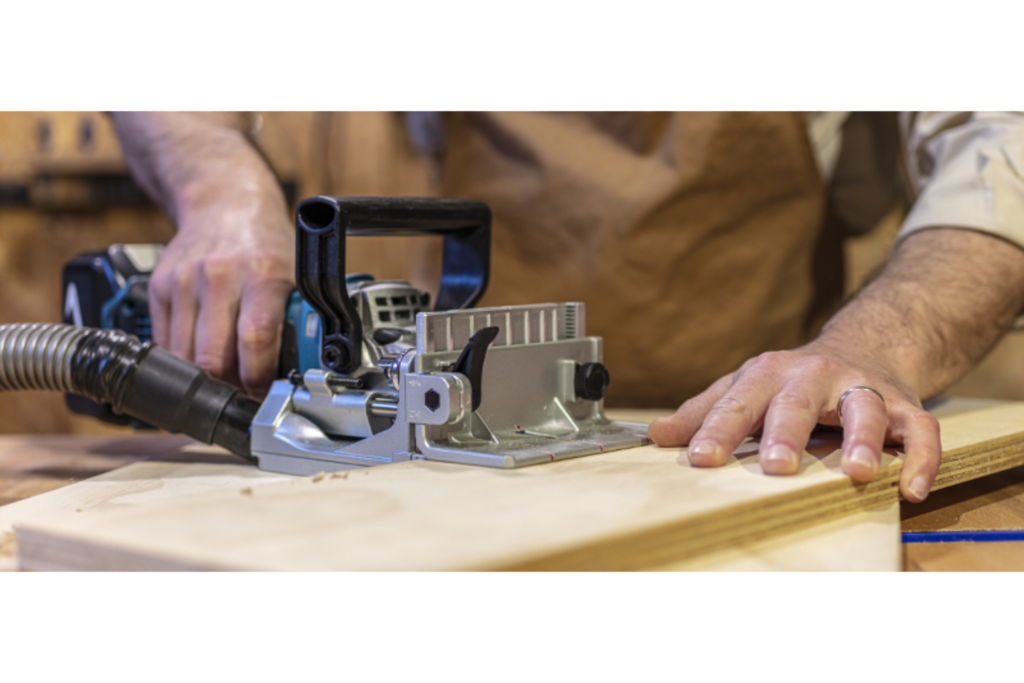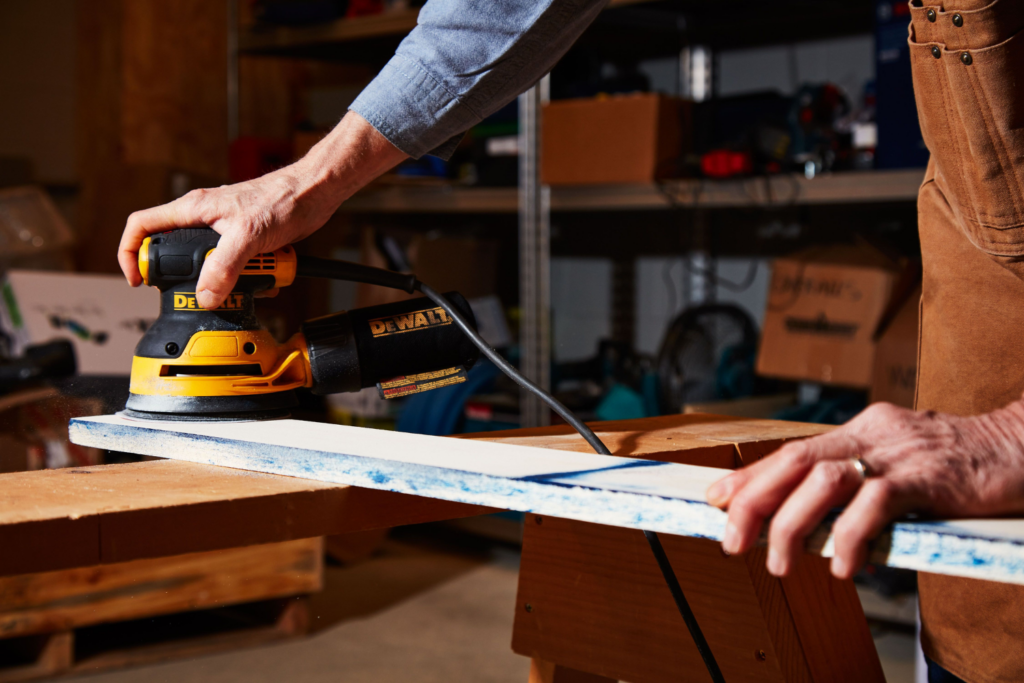Woodworking is a craft that combines precision, creativity, and skill. Whether you’re a seasoned carpenter or a beginner, having the right tools is crucial to bringing your projects to life. This article will walk you through the must have woodworking tools that every woodworker should consider adding to their collection. We’ll cover everything from basic hand tools to advanced machinery, ensuring you have all the information you need to get started or upgrade your toolkit.
For your “Free” 2 in 1 Folding Picnic Table Bench Plan – Click Here.
Introduction: Why Must Have Woodworking Tools Matter
When diving into woodworking, the first thing you need to understand is the importance of the right tools. Having the must have woodworking tools in your arsenal can make the difference between a frustrating project and a masterpiece. These tools not only make your work easier but also ensure accuracy and safety, allowing you to focus on the art of woodworking itself.
1. The Foundation: Measuring and Marking Tools
Before you even think about cutting or shaping wood, you need to measure and mark your materials accurately. Essential tools in this category include:
- Tape Measure: An absolute must for any woodworker, providing precise measurements.
- Combination Square: Useful for marking and measuring right angles and ensuring your cuts are square.
- Marking Gauge: Ideal for scribing lines parallel to the edge of your workpiece.
2. Cutting Tools: Precision at Its Best
Cutting tools are at the heart of woodworking. Without them, turning raw wood into a piece of art would be impossible. Here are some must haves:
- Hand Saw: A versatile tool for making quick cuts.
- Coping Saw: Perfect for intricate cuts and curves.
- Back Saw: Essential for fine, precise cuts, particularly in joinery.
3. Power Tools: Taking Your Woodworking to the Next Level
Power tools can save you time and effort, making complex tasks simpler and quicker. Key power tools include:
- Table Saw: The workhorse of any woodworking shop, perfect for ripping large boards.
- Circular Saw: Great for making long, straight cuts.
- Jigsaw: Ideal for cutting curves and complex shapes.



4. Shaping Tools: Sculpting Your Masterpiece
Once you’ve made your cuts, shaping tools help refine and perfect your pieces. These tools are indispensable for any serious woodworker:
- Chisels: Essential for detailed carving and joinery work.
- Rasps and Files: Perfect for smoothing rough edges and shaping wood.
- Spokeshave: Used for creating smooth, curved surfaces.
5. Drilling Tools: Creating Holes with Precision
Drilling tools are necessary for making holes for screws, dowels, and other joinery techniques. Some of the must have drilling tools are:
- Drill Press: Offers precision and control for drilling accurate holes.
- Hand Drill: A versatile tool for drilling in tight spaces or for small projects.
- Countersink Bits: Used to create a recess for screw heads, ensuring a flush finish.
6. Sanding Tools: Achieving the Perfect Finish
Sanding is a critical step in woodworking, helping to smooth and finish your pieces. Essential sanding tools include:
- Random Orbital Sander: Provides a smooth finish with minimal effort.
- Belt Sander: Great for removing material quickly and leveling surfaces.
- Hand Sanding Blocks: Useful for detail work and finishing touches.
7. Clamping Tools: Holding It All Together
Clamps are crucial for holding your workpieces in place while you cut, shape, or glue them. Some essential clamping tools are:
- Bar Clamps: Versatile and strong, perfect for larger projects.
- C-Clamps: Ideal for smaller, more detailed work.
- Spring Clamps: Quick and easy to use for temporary holding.
8. Joinery Tools: Building Strong Connections
Joinery is the art of connecting pieces of wood to create a stable structure. Must have woodworking tools for joinery include:
- Dovetail Jig: Helps create precise dovetail joints.
- Mortise and Tenon Tools: Essential for traditional joinery techniques.
- Biscuit Joiner: Makes quick and strong joints using biscuits.

9. Sharpening Tools: Keeping Your Edge
Sharp tools are safer and more effective. Keeping your tools sharp is a must for any woodworker. Essential sharpening tools include:
- Sharpening Stones: Used for sharpening chisels and plane blades.
- Honing Guide: Ensures a consistent angle while sharpening.
- Strop: Polishes and hones the edge of your tools.
For your “Free” Outdoor Projects Plan – Click Here.
10. Safety Gear: Protecting Yourself
Safety should always be a priority in woodworking. Essential safety gear includes:
- Safety Glasses: Protect your eyes from dust and debris.
- Hearing Protection: Guards against loud power tools.
- Dust Masks: Prevent inhalation of sawdust and other particles.
11. Workbench: The Heart of Your Workshop
A solid workbench is the foundation of any woodworking shop. It provides a stable and reliable surface for all your projects. Features to look for include:
- Sturdy Construction: Ensure it can handle heavy work.
- Vices and Clamps: For holding your workpieces securely.
- Storage: Drawers and shelves for organizing your tools.
12. Finishing Tools: Adding the Final Touches
After constructing your project, finishing tools help add the final touches. These tools include:
- Paint Brushes and Rollers: For applying finishes and paint.
- Spray Gun: Offers a smooth, professional finish.
- Buffer and Polisher: Helps achieve a high-gloss finish.
13. Advanced Tools: For the Experienced Woodworker
For those looking to take their woodworking to the next level, advanced tools can open up new possibilities. Consider adding these to your collection:
- Router: Perfect for creating decorative edges and joinery.
- Planer: Useful for flattening and smoothing rough lumber.
- CNC Machine: Allows for precision cutting and engraving.



14. Must Have Woodworking Tools for Beginners
If you’re just starting out, here are some must have woodworking tools that will help you build a solid foundation:
- Basic Hand Tools: Start with a good set of chisels, saws, and a hammer.
- Power Drill: Versatile and essential for drilling and driving screws.
- Sanding Tools: Begin with a simple sanding block and progress to power sanders as needed.
15. Must Have Woodworking Tools for Professionals
For professional woodworkers, having a comprehensive set of tools is essential. Here are some advanced tools to consider:
- Bandsaw: Ideal for cutting curves and resawing lumber.
- Drum Sander: Provides a smooth, even finish on large pieces.
- Edge Jointer: Ensures perfectly straight and square edges.
16. Maintenance of Must Have Woodworking Tools
Taking care of your tools is crucial to ensure they last and perform well. Regular maintenance tips include:
- Cleaning: Keep your tools free of dust and debris.
- Sharpening: Regularly sharpen blades and bits.
- Oiling: Prevent rust and ensure smooth operation.
17. Must Have Woodworking Tools for Specific Projects
Different projects require different tools. Here are some specialized tools for specific woodworking tasks:
- Cabinetmaking: Requires precision measuring tools, clamps, and finishing tools.
- Furniture Building: Needs joinery tools, sanders, and a reliable workbench.
- Woodcarving: Essential tools include carving knives, gouges, and a mallet.
18. Budget-Friendly Must Have Woodworking Tools
You don’t need to break the bank to get started in woodworking. Here are some budget-friendly options:
- Used Tools: Look for quality used tools at garage sales or online.
- Starter Kits: Many manufacturers offer starter kits that provide good value.
- DIY Solutions: Sometimes you can make your own tools or modify existing ones.
19. Must Have Woodworking Tools for Small Workshops
If you have limited space, you’ll need to be selective about your tools. Consider these space-saving options:
- Multi-Function Tools: Tools that serve multiple purposes can save space.
- Compact Workbench: Look for foldable or wall-mounted options.
- Portable Tools: Tools like cordless drills and compact saws can be stored easily.
20. Must Have Woodworking Tools for Outdoor Projects
Outdoor woodworking projects have unique requirements. Here are some tools that can handle the elements:
- Cordless Tools: Battery-powered tools are convenient and versatile.
- Weather-Resistant Materials: Use tools that can work with treated lumber and other outdoor materials.
- Portable Workbench: A collapsible workbench can be taken to different sites.

21. Eco-Friendly Must Have Woodworking Tools
For those interested in sustainability, consider these eco-friendly tools and practices:
- Hand Tools: Reduce your carbon footprint by using manual tools when possible.
- Reclaimed Wood: Tools that can work with reclaimed materials help reduce waste.
- Eco-Friendly Finishes: Look for non-toxic, water-based finishes.
22. Conclusion: Building Your Collection of Must Have Woodworking Tools
Embarking on your woodworking journey is exciting, and having the right tools will make all the difference. By investing in these must have woodworking tools, you’ll be well-equipped to tackle any project with confidence and precision. Remember, quality tools are an investment in your craft, and with proper care, they will serve you for many years to come.
For your “Free”Guide to 13 Wood Joinery Types – Click Here.
FAQs About Must Have Woodworking Tools
Q1: What are the most essential woodworking tools for beginners? A: For beginners, essential tools include a tape measure, hand saw, power drill, chisels, and a sanding block.
Q2: How do I maintain my woodworking tools? A: Regular maintenance involves cleaning, sharpening blades, oiling moving parts, and storing tools properly to prevent rust.
Q3: Can I start woodworking with a limited budget? A: Yes, you can start with basic, budget-friendly tools and gradually expand your collection. Look for used tools and starter kits to save money.
Q4: What safety gear should I use in woodworking? A: Essential safety gear includes safety glasses, hearing protection, and dust masks to protect yourself from potential hazards.
Q5: How do I choose the right tool for a specific project? A: Consider the requirements of your project, such as the type of wood, precision needed, and the specific tasks involved. Research and invest in tools that will best suit your needs.
By following this guide and investing in the must have woodworking tools, you’ll be well on your way to mastering the art of woodworking. Happy crafting!
